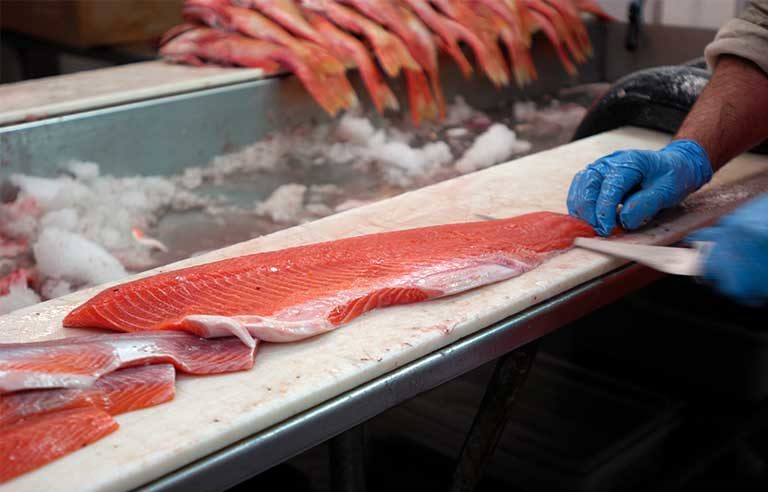Seafood workers faced increased risk of COVID-19 as pandemic peaked: study

Durham, NH — U.S. seafood workers were twice as likely to contract COVID-19 as workers in other food industries during the height of the pandemic, results of a recent study indicate.
Researchers from the University of New Hampshire reviewed news reports, scientific articles and white papers to understand when and where COVID-19 cases occurred in the seafood industry, the indirect and direct effects of the pandemic throughout the seafood value chain, and how the seafood sector fared compared to similar industries.
They found that most cases of COVID-19 among seafood workers were reported during the height of the pandemic – in the summer of 2020 and the beginning of 2021. The majority were among those involved in seafood processing who tend to work in close proximity to each other for hours.
The workers also contended with concerns about workplace safety, contracting COVID-19, access to medical services, vaccination and paid sick leave. In addition, they had economic concerns over revenue loss, labor shortages, supply chain issues, lagging demand for seafood and price fluctuations.
| Sign up for Safety+Health's free monthly email newsletters and get the news that's important to you. |
“The U.S. seafood industry was hit pretty hard, especially workers in high-density workplaces like seafood processing plants where social distancing was difficult,” Easton White, study author and an assistant professor of biological sciences at UNH, said in a press release. “Even though COVID-19 precautions were set in place, reducing the number of workers on processing lines, it meant longer shifts and increased exposure overall. Fishing vessels had similar issues, where crews on crowded boats faced challenges wearing PPE, or masks, in wet and windy conditions.
“We hope this research sets the foundation for future practices in the seafood sector in relation to the COVID-19 pandemic, improving the overall workplace and recognizing the importance of collecting systematic social and economic data about workers.”
The study was published in the journal PeerJ Life & Environment.
Post a comment to this article
Safety+Health welcomes comments that promote respectful dialogue. Please stay on topic. Comments that contain personal attacks, profanity or abusive language – or those aggressively promoting products or services – will be removed. We reserve the right to determine which comments violate our comment policy. (Anonymous comments are welcome; merely skip the “name” field in the comment box. An email address is required but will not be included with your comment.)

